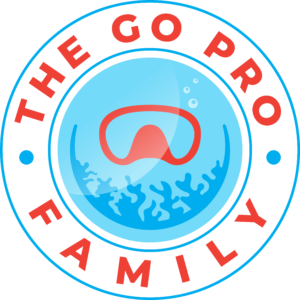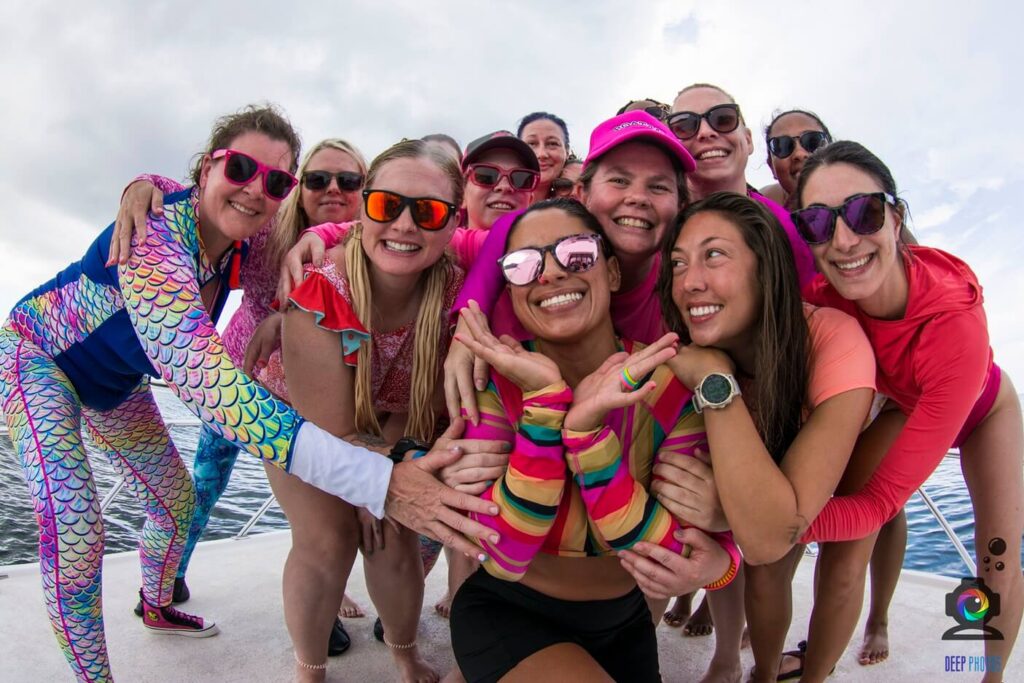We asked our past IDC candidates to give their advice to new PADI instructors and to share how, despite some challenges, they made a success of their scuba careers.
If you are considering taking your Instructor Development Course you can find a huge amount of information online from different IDC centers (ours included) whose job it is to tell you why their instructor training programs are better than the rest.
But becoming an instructor is only the first step. What happens after you pass your Instructor Exams? It’s true that every instructor will have different expectations and aspirations for their scuba career. But without some kind of plan, a new instructor can easily drift into a job that doesn’t fulfil them. In a customer-centric job, such as being a scuba instructor, maintaining that “spark” is important for everyone: instructor, students, and dive center owner.
Whatever your plan is, you want life as a diving instructor to be a successful and enjoyable journey.
WE ASKED THE BEST PEOPLE FOR THEIR ADVICE
How does life as a PADI Instructor take shape? Will you find a job easily and what are some highs and lows? I decided to reach out to some of our past IDC candidates, who have survived many years as an instructor and who are still very much in love with their jobs. I asked them to share some nuggets of advice and insights into the scuba diving industry, in the hope of discovering the secrets to their success.
I hope that their stories will help a new generation of instructors to have a long and enjoyable career as a dive Instructor.
FINDING A JOB
Maira
Maira Rozado Thomas took her IDC with us back in September 2012 (it was our first IDC in Mexico). She had been working as a Divemaster and had to quit in order to take the IDC. But after passing the Instructor Exams she didn’t find it hard to find an instructor’s job. “Lots of dive centers will accept new instructors, as long as they are committed, hard workers, have excellent customer service and presentation” says Maira. She applied to one of the biggest dive companies in the area which enabled her to gain experience, but she didn’t want to be there for the long term. “It was difficult to find a dive shop that I identified with, and which saw my potential” she added.
Felicity
Felicity Maloney became a scuba instructor with The Go Pro Family ten years ago and she also found a job easily. “I printed my CV, got out there and introduced myself in the local dive community” she recalls. Within two days she had secured a job.
Shaun
Shaun McGachan took his IDC with us in Huatulco in early 2022. He applied for three jobs and was pleasantly surprised given his age and lack of diving work experience that two of those applications were successful. “I focused on transferable skills from other roles in my CV which is why I think I got 2 out of 3 positive responses” he told me. In the end Shaun accepted an instructor position at the dive shop where he did his IDC. “It was a seasonal job which was what I was looking for.”
Emilio
After becoming a PADI instructor almost twelve years ago, Emilio Gutierrez initially took a job at a large resort-based dive center in the Riviera Maya. “It was a good experience, but I wasn’t meant for the resort life.” he remembers. Emilio soon moved to a smaller dive center but says that he would not change anything as he learned the different demands of each type of dive shop, and it was great learning experience which helped him get to where he is now.
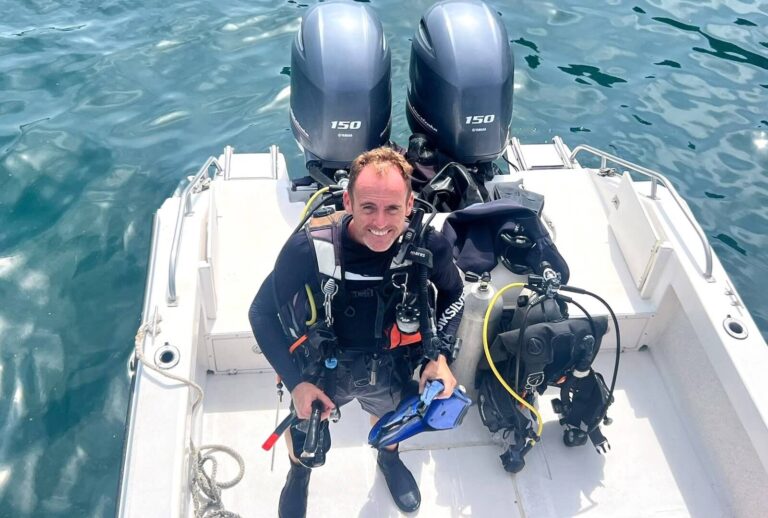
STARTING OUT AS A NEW INSTRUCTOR
What I found remarkable is how is how clearly each instructor remembered the first course they taught. (I remember my first course too!)
Emilio’s first course was an Open Water Course. He didn’t feel fully confident but hopes that it didn’t show. “In the end it was great, I was lucky that my first two students were young, active, and not afraid at all. By the end of the course, I realized that I really liked teaching diving and I felt I was actually good at it which made a huge difference in confidence for my second course”.
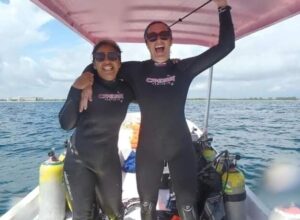
The Open Water Course was also Felicity’s first. She remembers “I was doing so well and feeling great until I lost my slates in between Dives 1 and 2. Luckily, I had an experienced instructor on the boat who told me the skills for my next dive and my captain wrote them on my arm with a Sharpie! That memory still makes me laugh.”
Shaun’s first teaching was conducting a Discover Scuba Diving program. Whilst he was well-prepared in terms of the material and standards, he soon realized that the personal side of being an instructor was just as important. “I forgot about the person receiving the training until it was underway and I got questions. Overall, it was a success once I focused more on the student and how they learn”.
INITIAL CHALLENGES
Maira remembers her first weeks on the job as stressful. “The IDC teaches you to be a good instructor, and this takes lots of quality time with your students” she says. “Most dive centers want efficiency…and it was so hard to fit all the skills in that one morning. I did not know how to break up the class and I felt very nervous. In hindsight, I should have taken my time versus trying to please the dive shop. As instructors, we have more power than we think. We just need to be assertive and confident that our IDC taught us well. We shouldn’t fall into thinking that the more veteran instructors who have, sometimes, terrible habits, know better than us.”
Emilio’s initial challenge was selling. “I wasn’t great at selling but had many other strengths so the challenge was to find the right place where my strengths would fit and overtake my weakness.”
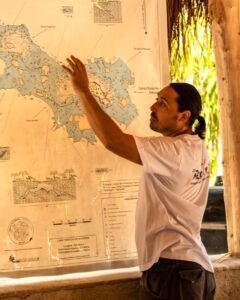
Felicity found that visualization helped her initially. “The night before courses I would read the skills and think about where we would be, how to order everything, how much time I expected each portion to take and just visualized how my day would go. This helped me move smoothly and efficiently with my courses.” she recalled.
Most of these instructors had done some kind of team-teaching with more experienced instructors, but with mixed outcomes. While some felt it was a valuable experience, others did not. I suspect that this boils down to the different instructors they were teach-teaching with and their willingness to pass on their knowledge and tips to the new ones.
Maira missed guidance during her first months. “I would have liked a mentor who taught me the politics and ethics of the dive boats or the culture of diving in the area, specifically for a new, young female instructor.” she told me.
For Shaun, he would have liked more variety in the courses he was teaching. He lacked the confidence initially to ask to teach more courses other than just Open Water and DSDs.
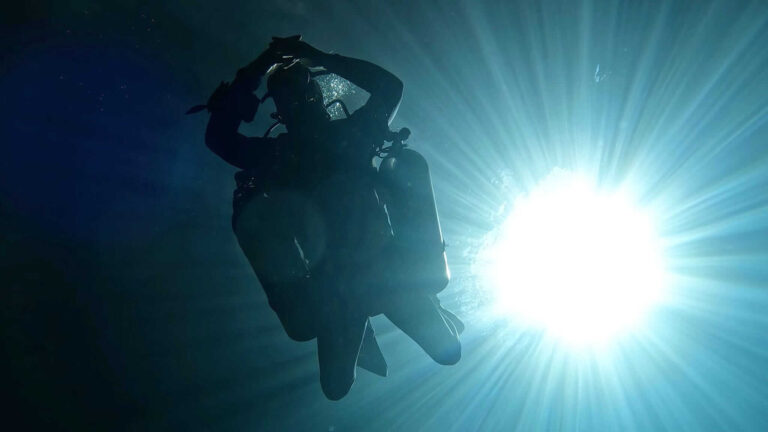
AVOIDING THE INSTRUCTOR BURN-OUT
Despite what other people might think, working full time as a dive instructor is hard. It’s a client-focused job which takes its toll if you are working long hours, and safety is paramount meaning the job can be stressful. From listening to these instructors’ different stories, they all changed their roles and varied their work, even the ones who stayed with the same dive center.
Emilio reveals “I changed shops just a couple of times. In both locations I improved by increasing my knowledge and responsibilities. I helped with organization, management, equipment repair etc. I took my full cave course after a year of being an instructor and I just loved it. With time and effort now I am up to stage cave instructor and I don’t see myself doing anything other than working in the scuba diving industry.
For Shaun, his personal development has been mainly expanding specialties and general dive operations management. In addition to working as a PADI Instructor he is now the head of marketing and social media at Huatulco Dive Center. He plans to expand more his specialty instructor ratings to keep developing.
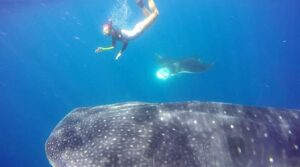
As for Felicity, she took her sidemount and full cave courses, eventually working as a cavern guide in the cenotes. “In 2019 I moved into a managing position and split my time between the office and the water. I think this prevented me from experiencing teacher burn out as it gave me new things to learn and new challenges. Managing and training staff felt like a natural next step and my boss must have felt the same as I am now proud to be managing partner of Wet Set Diving Adventures in Puerto Morelos.”
Maira worked in a few dive centers in Mexico and managed a dive shop in Dallas before starting her own travel business and female community of divers in the USA, Mar Hosted Trips, and Scuba MAR Maids. “My business is to bring groups of divers to unique dive destinations around the world in a sustainable manner trying to also impact the local communities in a positive way.
Our different projects include an outreach program for local women to become professionals, a dive school that teaches women in a more immersive way all things related to scuba and a conservation program that is in development where we will work with marine biologists to create a citizen science program for our guests around the world.”
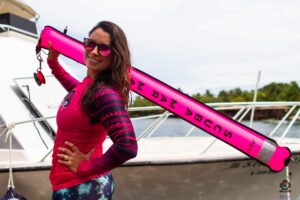
ADVICE ON HOW TO MAKE YOUR CAREER A SUCCESS
I asked each of the instructors for a piece of advice that they would give to their former self as a new instructor. Despite these four instructors coming from different backgrounds and having different experiences, they all opted to encourage themselves to be more self-confident and have faith in their own abilities.
Maira said: “Angel told me: ‘I need you to speak and do what YOU think versus doing what everyone else is doing.’ I didn’t understand it at first, but it stuck with me. I would say to myself: have more initiative – believe in all those ideas you have, make them happen.”
Emilio: “Don’t settle anywhere where you feel undervalued, underused and exploited. There is the right the place for you out there. You just need to work for it.”
Shaun advised “Push harder for what you want out of the role, don’t just accept what is offered because you are new.”
Felicity: “Trust yourself and your instincts.” She also recalled “Starting out I really didn’t understand the scope of the industry. Don’t limit yourself – there is so much more to learn and experience. Take tours, classes and courses with other companies, see how it feels to be the student again; it can be very humbling. You never know when you will find another niche that’s perfect for you.”
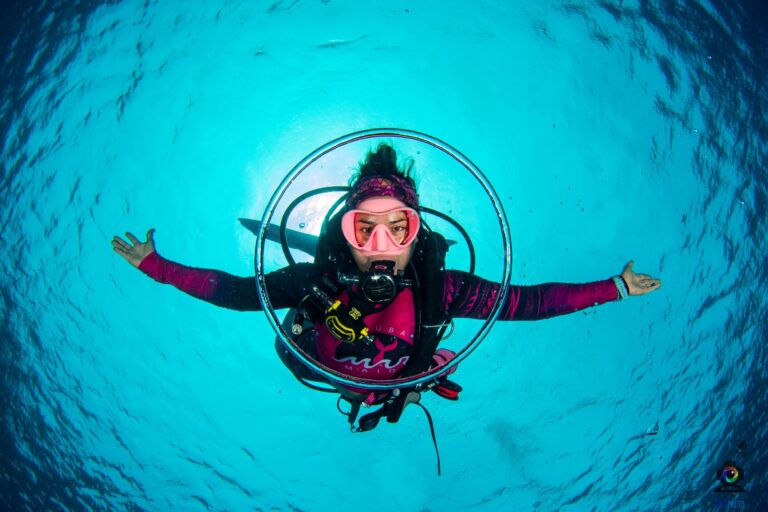
THE IMPORTANCE OF HAVING GOALS
For sure, these instructors have not survived in the scuba industry for so long without having goals. Emilio says “Success in the diving industry is not just about being a good diver. Its more about being patient, social, improving your non-diving skills (languages, marketing, management etc) and working hard on your goals. If you don’t have goals, you’ll get tired of doing the same thing.”
As well as having goals, passion for what you are doing is also important. Or as Maira puts it, having a heart. “What brought me where I stand is my attitude and my passion. I genuinely care, and people will support your heart more than anything once you become an expert and can guide them through the experience. Don’t forget your heart.”
Wise words indeed. And there seems to be no sign of their thriving scuba careers slowing down any time soon.
IN SUMMARY
Your IDC is a considerable investment of time and money. You will want to make a success of your scuba career in order to make a return on that investment. Planning how you will get that first job is important, but looking beyond that to the future, and trusting yourself, is perhaps the secret to a long and successful career as a PADI Instructor. I hope that these stories have inspired you to reach for and attain your goals.
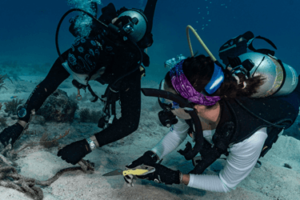
Sustainable Dive Travel: The Go Pro Family’s Efforts to Protect the Ocean
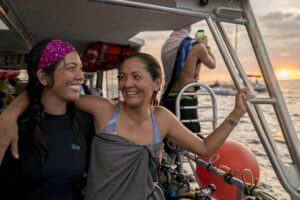
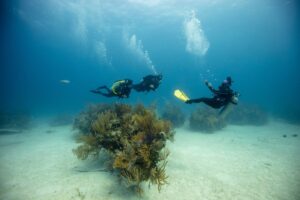
3 Reasons to Love Being a PADI Instructor (and how to rekindle lost love)

